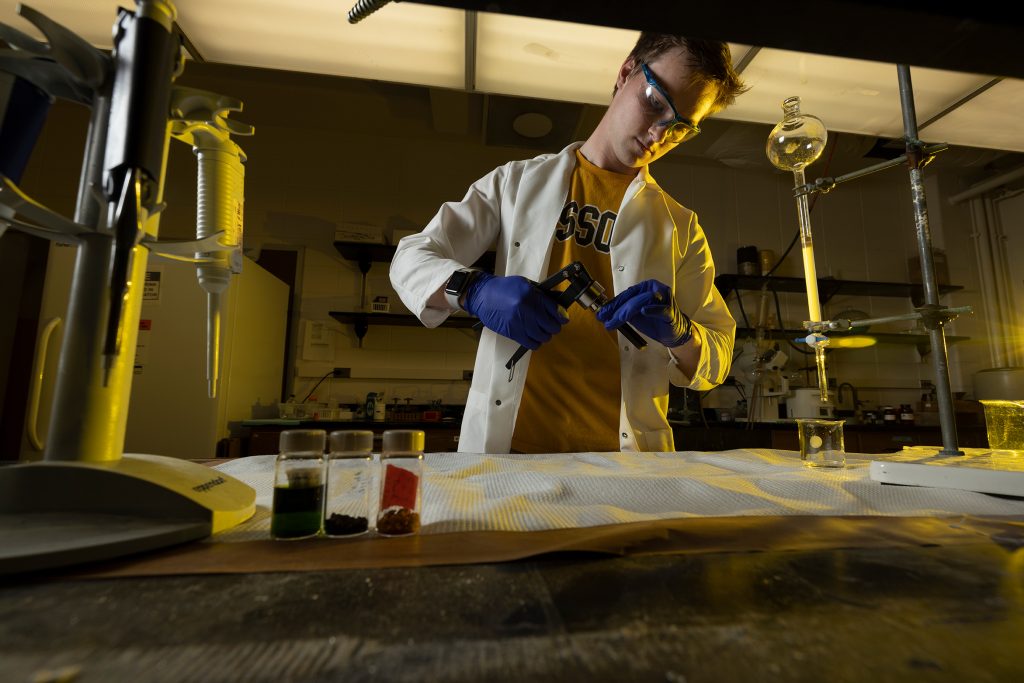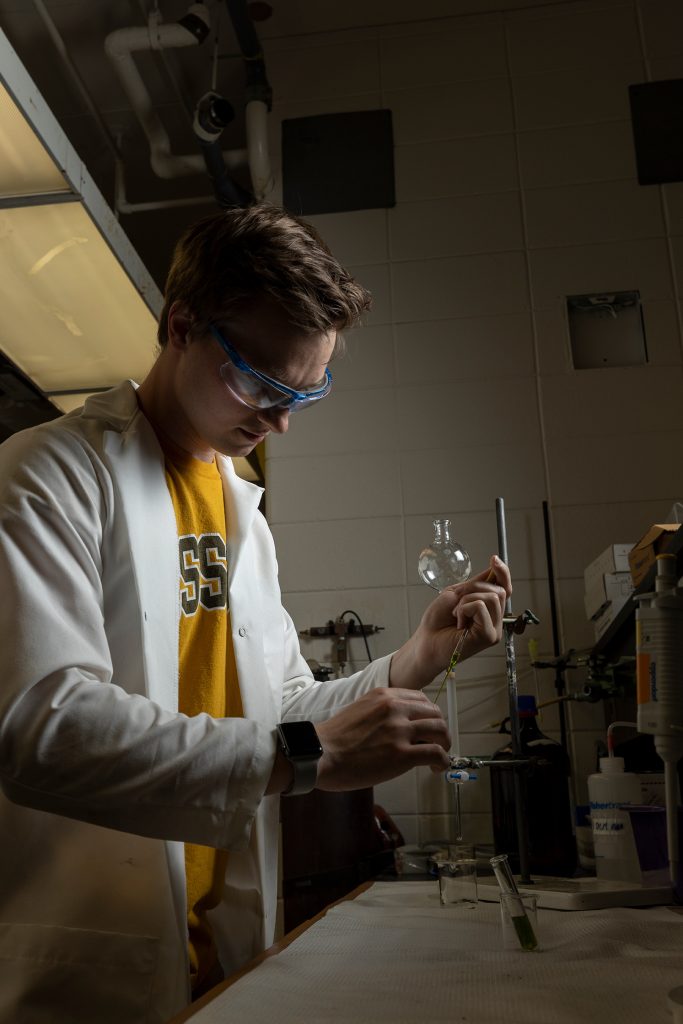Published on May 24, 2022
University of Missouri student Andrew Mitchell, a senior chemistry major from Lee’s Summit, Missouri, has been awarded a place in the prestigious and highly-competitive National Science Foundation’s (NSF) Graduate Research Fellowship Program. The program, totaling five years, is designed to support graduate students looking to participate in research while acquiring their master’s and doctoral degrees. It also includes three years of financial aid, comprised of a $34,000 annual stipend and a $12,000 cost of education allowance.
Mitchell plans to attend Purdue University in West Lafayette, Indiana, where he will be pursuing a PhD in chemistry. While Mitchell always planned to pursue STEM, after wading through various types of science, he finally found his home in chemistry. Being a hands-on learner, the natural inclination in chemistry towards building new things caught Mitchell’s eye.

“It’s all about making things, but on a much smaller scale with much more complex interactions going on,” said Mitchell. “I’m a maker. I like to 3D print, quilt, weld. I spent my summer of the pandemic learning some of those skills and chemistry is just kind of an extension of that.”
Mitchell’s interest in building, and 3D printing specifically, have been galvanized by classes and projects at Mizzou. After taking a graduate course on 3D printing called “Making an Education,” Mitchell was able to transfer the skills he learned 3D printing into his next project: getting his level three certification for high powered rocketry.
Working through the Stamps Scholars program within the University of Missouri’s Honors College, to obtain his certification Mitchell must build a nine-foot rocket capable of going 10,000 feet in the air.
“Now I’m building the nine foot [rocket] and there’s a number of parts in it that are 3d printed,” said Mitchell. “I also just have some fun. I have made a couple of puzzle boxes, stuff like that.”
What primarily concerns Mitchell, however, isn’t top tier research or cool 3D printed projects, but helping people. Using his chemistry knowledge, Mitchell believes one of the many ways he can help people is to teach people the real risk, or lack thereof, posed by radiation.

“As a radio chemist I work a lot with radioactive materials. A lot of people are concerned because radiation is this deadly thing, or it’ll make you grow a third arm. Helping people realize that just like anything else, radiation is something that needs to be used safely and respected, but it doesn’t have to be dangerous,” said Mitchell. “[M]y goal has always been to have an impact on the world, hopefully within my lifetime.”
While preparing his application for the NSF, Mitchell also worked with the Fellowships office at MU that provides assistance to undergraduates seeking competitive national and international scholarships, fellowships, and grants.